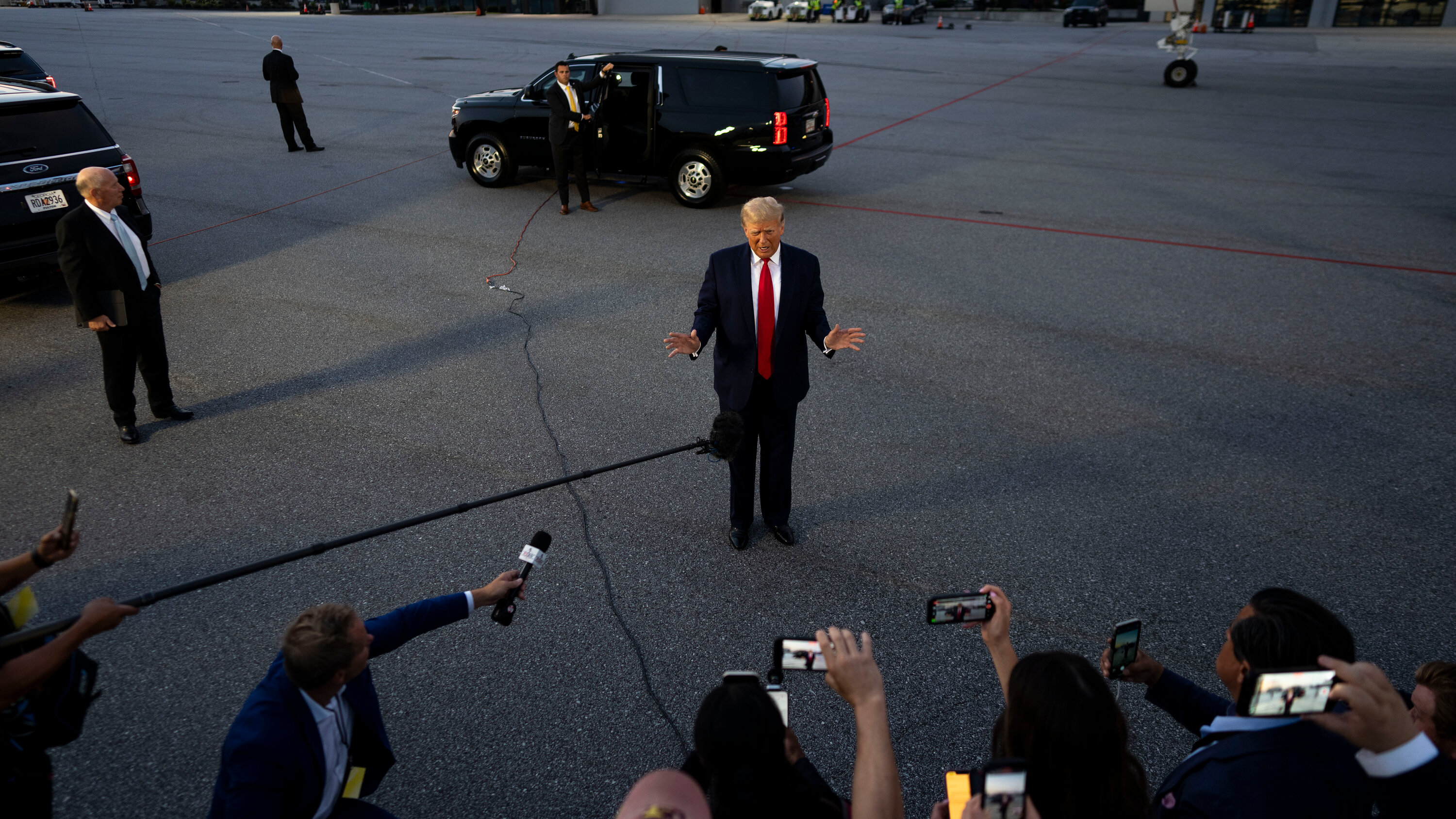The question of whether they killed the guy that shot Donald Trump has sparked intense speculation and debate among political enthusiasts, conspiracy theorists, and the general public alike. In a world where news travels at the speed of light, and misinformation can spread like wildfire, it is essential to separate fact from fiction. This article aims to explore the circumstances surrounding this hypothetical event, the implications it carries, and the broader context of political violence in America.
As we delve into the intricacies of this topic, we will examine the motivations behind political violence, the consequences of such actions, and the legal ramifications that follow. Furthermore, we will analyze the role of the media in shaping public perception and the importance of maintaining a critical perspective in the face of sensationalism.
By the end of this article, readers will have a comprehensive understanding of not only the specific incident in question but also the wider implications of political violence and its impact on society. So, let’s embark on this journey to uncover the truth behind the question: did they kill the guy that shot Donald Trump?
Table of Contents
- Introduction
- The Context of Political Violence
- Analyzing the Myth
- The Media’s Role in Shaping Perception
- Legal Ramifications of Political Violence
- Historical Parallels
- Preventive Measures Against Political Violence
- Conclusion
The Context of Political Violence
Political violence has been a recurring theme throughout history, often arising from deep-seated societal issues, ideological conflicts, and the struggle for power. Understanding the context in which such violence occurs is crucial in analyzing specific incidents, such as the hypothetical question of the shooter targeting Donald Trump.
Factors Contributing to Political Violence
- Ideological Extremism: Radical beliefs can drive individuals to commit violent acts in the name of their cause.
- Socioeconomic Disparities: Economic inequality can lead to frustration and a sense of disenfranchisement, contributing to unrest.
- Political Polarization: Increasing divisions in political beliefs can escalate tensions and lead to violent confrontations.
Analyzing the Myth
The question of whether they killed the guy that shot Donald Trump likely stems from the sensational nature of political discourse in the media and the public’s fascination with conspiracy theories. To analyze this myth, it's essential to consider the implications of such a narrative.
Impact of Conspiracy Theories
- Distrust in Institutions: Conspiracy theories can erode public trust in government and law enforcement agencies.
- Spreading Misinformation: False narratives can spread rapidly, leading to confusion and panic.
- Polarizing Communities: These theories can deepen divisions within society, creating an “us vs. them” mentality.
The Media’s Role in Shaping Perception
The media plays a significant role in shaping public perception of political events, often influencing how incidents are interpreted and understood. The sensationalism that often accompanies news coverage can lead to distorted views of reality.
The Influence of Social Media
- Immediate Information: Social media allows for real-time updates, but often lacks verification.
- Echo Chambers: Users tend to engage with like-minded individuals, reinforcing existing beliefs and biases.
- Virality of Misinformation: False information can spread rapidly, leading to widespread misconceptions.
Legal Ramifications of Political Violence
Political violence carries significant legal consequences, not only for the perpetrators but also for society as a whole. Understanding these ramifications is crucial in addressing the root causes of such violence.
Consequences for Perpetrators
- Criminal Charges: Individuals involved in political violence can face severe legal penalties, including imprisonment.
- Civil Liability: Victims of political violence may pursue civil suits against perpetrators for damages.
- Long-term Consequences: A criminal record can affect employment opportunities and social standing.
Historical Parallels
Examining historical incidents of political violence can provide valuable insights into current events and the potential future of political discourse in America. Lessons learned from the past can help shape preventive measures and societal responses.
Notable Cases of Political Violence
- The Assassination of Robert F. Kennedy: A tragic event that highlighted the dangers of political extremism.
- The January 6 Capitol Riot: A recent example of political violence that raised questions about democracy and accountability.
- Political Assassinations in History: Understanding the motives and repercussions of historical assassinations can inform contemporary discussions.
Preventive Measures Against Political Violence
Addressing the root causes of political violence requires a multifaceted approach, involving community engagement, education, and policy reform.
Strategies for Prevention
- Promoting Political Dialogue: Encouraging open discussions can help bridge divides and foster understanding.
- Education and Awareness: Raising awareness about the dangers of political violence can empower communities to take action.
- Policy Reforms: Implementing policies that address socioeconomic disparities can reduce the likelihood of unrest.
Conclusion
In conclusion, the question of whether they killed the guy that shot Donald Trump serves as a starting point for a broader discussion about political violence and its implications in society. By understanding the factors that contribute to such actions, the role of the media, and the legal ramifications, we can better navigate the complexities of political discourse.
As citizens, it is our responsibility to engage thoughtfully with these issues, promoting dialogue and understanding while rejecting misinformation. We invite you to share your thoughts in the comments below, and don’t forget to explore our other articles for more insights into pressing topics.
Thank you for reading, and we hope to see you back on our site for more engaging content!
Also Read
Donald Trump's Granddaughters Speech: A New Generation Takes The StageWho Wanted To Kill Donald Trump: An In-Depth Analysis
Donald Trump Assassination Attempt: An In-Depth Analysis
Kamala Harris Vs Donald Trump: A Comprehensive Analysis Of Two Political Titans
What Happened To Donald Trump In July 2024: A Comprehensive Overview
Article Recommendations
- Luxury Villas Greece Le Collectionist
- 90s Cartoons Cartoon Network
- Sep 19 Zodiac
- What Does Nick Saban Daughter Do
- Greys Anatomy Marks Death
- Comedy S 2023
- Chris Berman Home
- Ab Booster Plus
- Sugar Babies
- July 5 Zodiac




